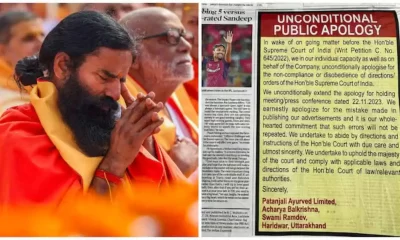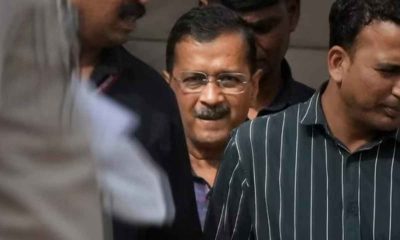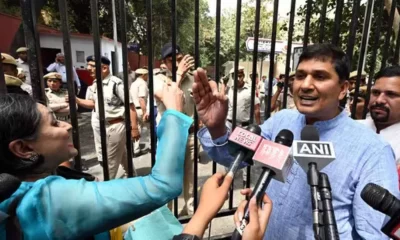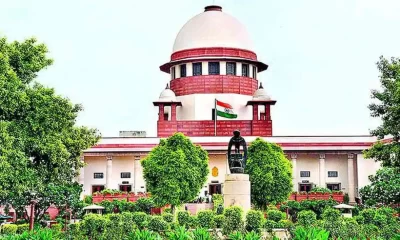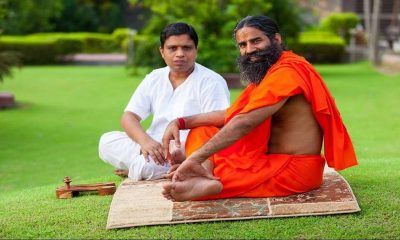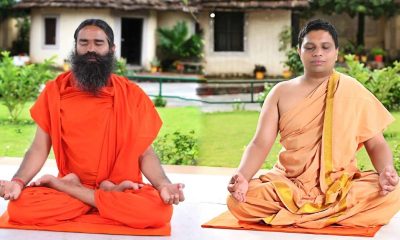India News
10 per cent quota for general category EWS: SC refuses stay, issues notice to Centre
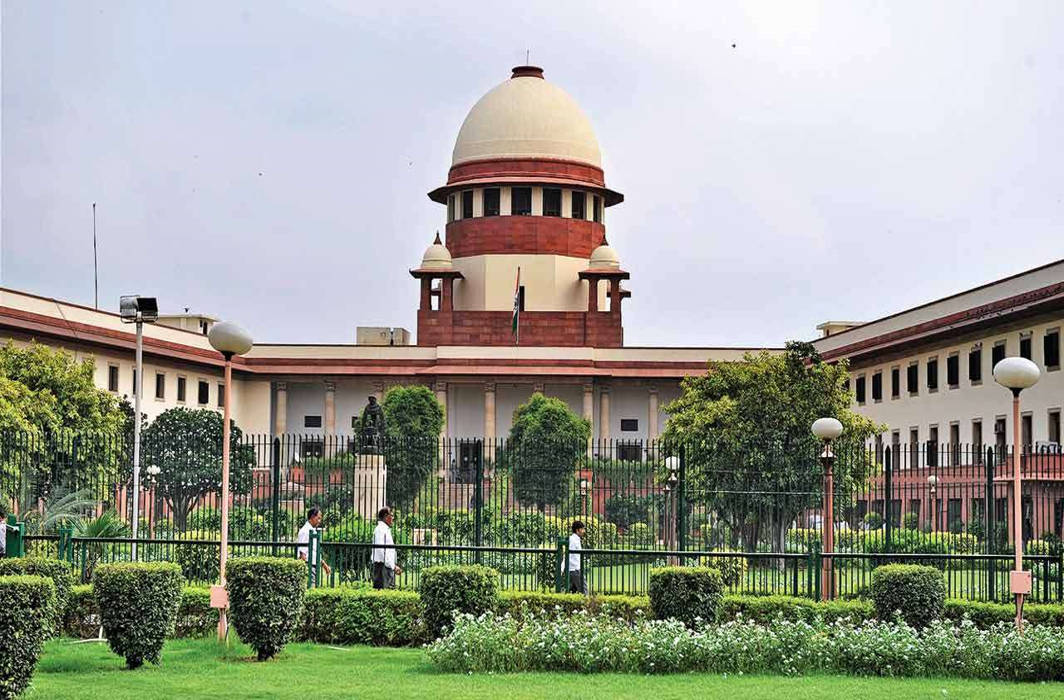
While refusing to stay the implementation of 10 per cent quota for economically weaker sections (EWS) in jobs and admissions to education institutions, including private ones, the Supreme Court today (Friday, Jan 25) issued notice to the Centre giving it four weeks to respond to a petition challenging the Constitutional amendment enabling the quota.
A bench, headed by Chief Justice of India Rajan Gogoi and comprising Justice Sanjiv Khanna, was hearing petitions that seek quashing of the Constitution (103rd Amendment) Act, 2019 on the ground that it violates the basic features of the Constitution and contradicts several judgments of the Court protecting the fundamental rights.
The petitioners contend that the amendments made to Article 15 and 16 of the Constitution are legally unsustainable as they violate the Basic Structure doctrine laid down by the Supreme Court in its Kesavananda Bharati verdict by doling out reservation benefits based on economic backwardness.
The petitioners have also said that the amendments are also a violation of the Supreme Court’s nine-judge Bench judgment in Indra Sawhney case which had settled the law that economic backwardness cannot be the sole basis for reservation.
The Indra Sawhney judgment had capped reservations – meant explicitly for those from the scheduled castes, scheduled tribes and socially backward classes – at 50 per cent. The 50% ceiling limit of quota had been “engrafted as a part of the Basic Structure of the Constitution’s equality code” by the Court.
The petitioners say the amendments excluded the OBC and the SC/ST communities from the scope of the economic reservation. This, it says, “essentially implies that only those who are poor from the general categories would avail the benefits of the quotas.”
They argue that the high creamy layer limit of Rs. 8 lakh per annum ensured that the elite capture the reservation benefits.
“By way of the present amendments, the exclusion of the OBCs and the SCs/STs from the scope of the economic reservation essentially implies that only those who are poor from the general categories would avail the benefits of the quotas. Taken together with the fact that the high creamy layer limit of Rs 8 lakh per annum ensures that the elite in the OBCs and SCs/STs capture the reservation benefits repeatedly, the poor sections of these categories remain completely deprived,” says a petition.
It says the Court had settled the law that the “State’s reservation policy cannot be imposed on unaided educational institutions, and as they are not receiving any aid from the State, they can have their own admissions provided they are fair, transparent, non-exploitative and based on merit”.
The plea states, “While the impugned amendment attempts to overcome the applicability of Articles 19(1)(g) and 29(2), it remains completely silent on Article 14, which right protects the citizens from manifestly arbitrary State action.”
The petition also contends that the term “economically weaker sections” remained undefined in the Bill along with the “ambiguous” term of “State.”
Both Houses of Parliament, during the winter session, passed the Constitution (One Hundred and Twenty Fourth Amendment) Bill, 2019 – which became the Constitution (103rd Amendment) Act after it was passed and got the President’s assent – providing 10 per cent quota for the EWS for general category candidates in government jobs and higher education institutions.
Several states have already implemented the quota, including Gujarat, Uttar Pradesh and Himachal Pradesh.
Under the Act, people whose families have a gross annual income of up to Rs 8 lakh, from all sources, can avail the quota. Families which own over five acres agricultural land, over 1,000 square feet house, over 100 yard plot in notified municipal area, or over 200 yard plot in non-notified municipal area cannot avail the benefit of this reservation.
Besides the petitions now in the Supreme Court, a similar plea has also been filed by the DMK in Madras High Court challenging the amendments.
2024 Lok Sabha Elections
Lok Sabha election 2024: Nearly 50% voter turnout recorded in second phase till 3 pm
The constituencies going to polls today include all 20 Lok Sabha seats in Kerala, 14 in Karnataka, 13 in Rajasthan, and others spread across different states.
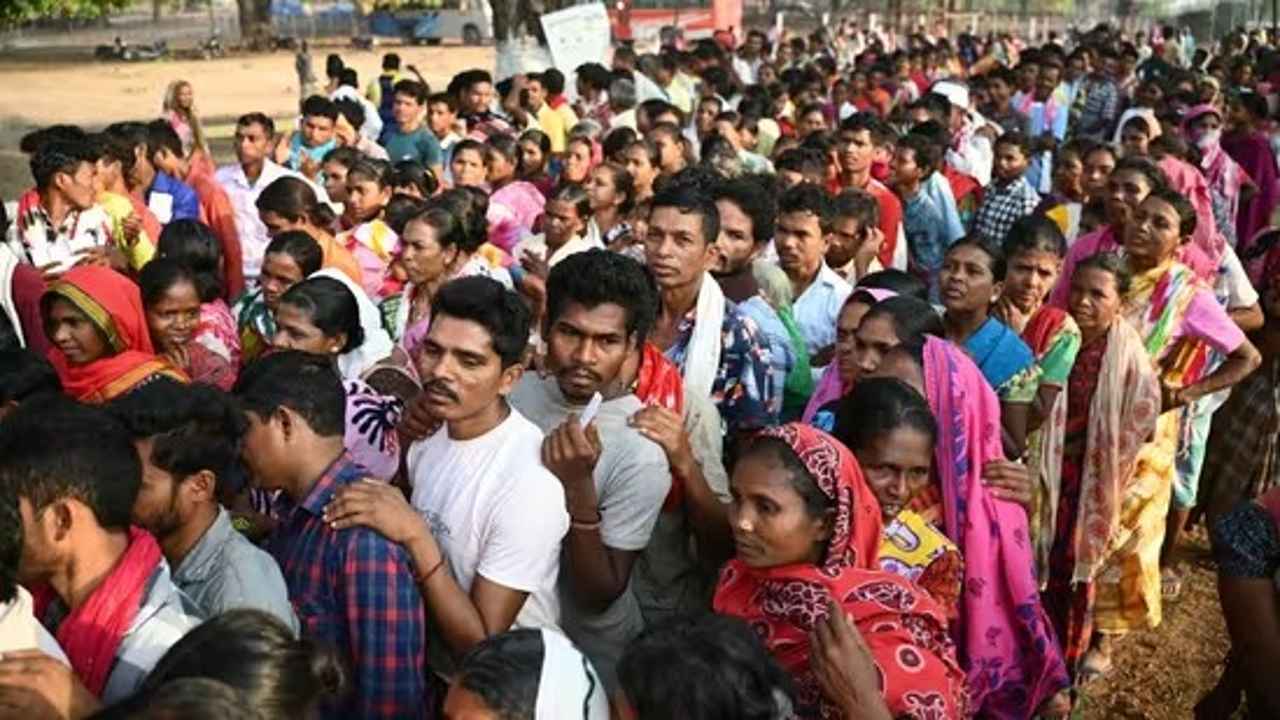
In the second phase of Lok Sabha elections 2024, over 50% of voters were registered in 13 states and the UTs till 3 p.m. 65% of voters participated in the first round of the Lok Sabha elections.
The 18th Lok Sabha elections are currently in their second phase, with voting for 88 seats taking place across 13 states and union territories. There are more than 1,200 people running for office, four of them are from outside Manipur.
Union minister Rajeev Chandrasekhar, BJP members Tejasvi Surya, Hema Malini, and Arun Govil, Rahul Gandhi and Congress leader Shashi Tharoor, DK Suresh, the brother of Karnataka Deputy Chief Minister DK Shivakumar, and former chief minister HD Kumaraswamy are among the notable contenders for the second phase.
In 2019, the NDA had won 56 of the 89 seats and the UPA 24. Six of these seats have been redrawn as part of the delimitation exercise.
The first phase of the seven stages of the elections took place on Friday, including 102 seats spread across 21 states and Union territories. Voter turnout was about 65.5% in the first phase, according to the reports.
In biggest festival of democracy, people from all walks of sector took part in it. A video went viral where former India captain and current Indian team head coach Rahul Dravid and former India player and head coach Anil Kumble were seen standing in line to cast their vote.
Meanwhile, voting started at 7 a.m. and will end at 6 p.m. The Election Commission has extended voting hours for those who are in line by an hour. According to Election Commission figures, the first two hours saw a 9.3% voter turnout throughout the 88 constituencies. By 9 am, Kerala had recorded 8.52%, Karnataka 9.21%, and Madhya Pradesh 13.82%.
In this phase, there were about 15.88 crore eligible voters, comprising 5.929 third-gender electors, 8.08 crore males, and 7.8 crore women. 3.28 crore young voters, aged 20 to 29, are among them; 34.8 lakh of them are first-time voters.
2024 Lok Sabha Elections
Lok Sabha elections 2024: 102-year-old man walks to polling booth to cast his vote in Jammu
The lowest voter turnout so far was noted in Ramgarh at 1.53%.
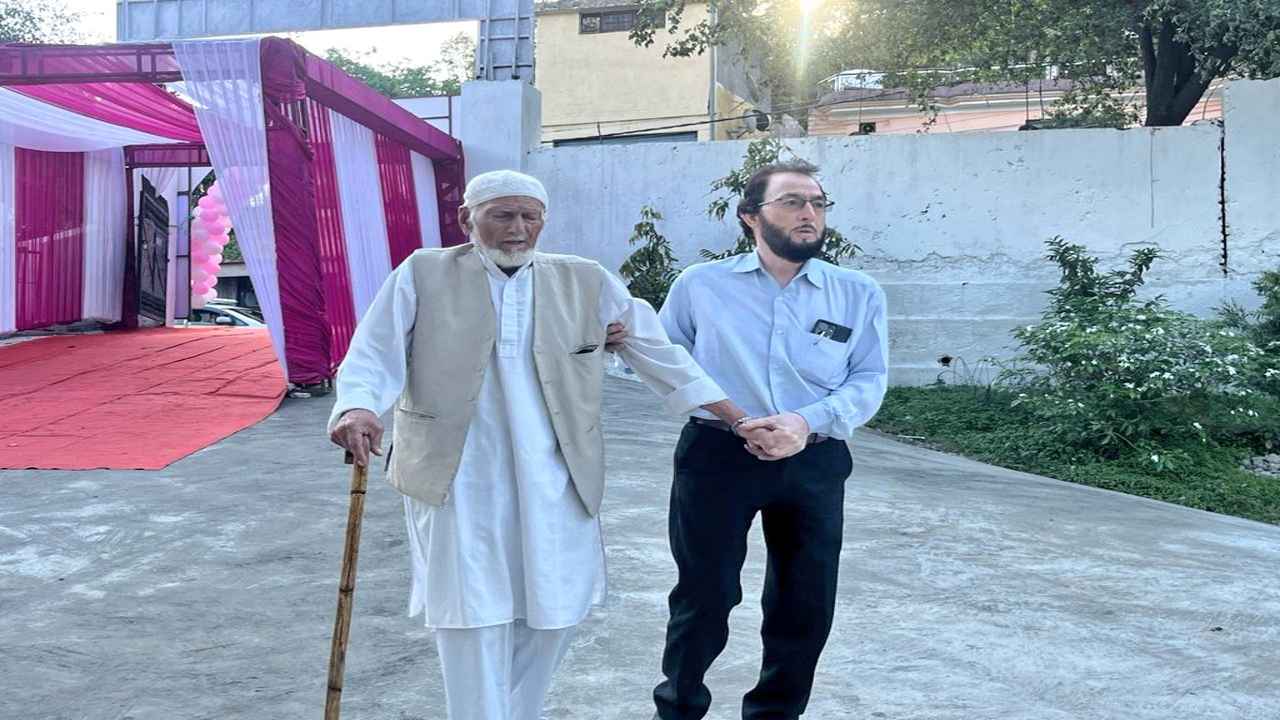
A 102-year-old man showed up at a Jammu polling place to cast his vote in the second phase of the Lok Sabha elections on Friday. Haji Karam Din arrived at the Reasi district polling place in the Jammu constituency with a walking stick in hand and a family member who assisted him with the pre-voting process.
Haji Karam Din, who is 102-year-old, showed his inked finger and posed for pictures outside the polling booth after casting his vote. He said voting at this polling place at this age makes him very happy. He has always cast his vote. Even at the age of 102, this experience is still ongoing, he said.
Reasi district is a part of the Jammu parliamentary constituency, and 22 candidates are up for vote with around 17.81 lakh eligible voters.
BJP’s sitting member Jugal Kishore Sharma is aiming for a third term in office following wins in the elections of 2014 and 2019. Former minister and Congress candidate Raman Bhalla is his main opponent.
Voting in the Jammu-Reasi Lok Sabha constituency began with eager voters showing up at the polling places. Some of them were wearing traditional Dogra attire.
In 2,416 polling places around the constituency, voting got underway at 7 a.m., and 10.39% of the total votes were cast by 9 a.m. In the 2019 Lok Sabha elections, Jammu recorded a 74% voter turnout.
Following the repeal of Article 370 and the division of the former state into two Union Territories five years ago, this is Jammu’s first significant election.
The Akhnoor segment received the highest percentage of votes, 14.24%, followed by Reasi (14.13%), Gulabgarh (13.53%), Shri Mata Vaishnodevi (12.71%), Marh (12.31%), Samba (8.56%), R S Pura Jammu South (8.17%), and Suchetgarh (5.67%), according to the officials. Ramgarh recorded the lowest voter participation of 1.53% so far.
Low attendance was observed in the border areas of the districts of Jammu and Samba till nine in the morning, according to poll data.
The officials said that big lines of voters were observed at several polling places throughout Jammu city. Voters were observed heading towards polling places early in the morning.
India News
Salman Khan house firing case: NIA interrogates arrested shooters Sagar Pal, Vicky Gupta for three hours
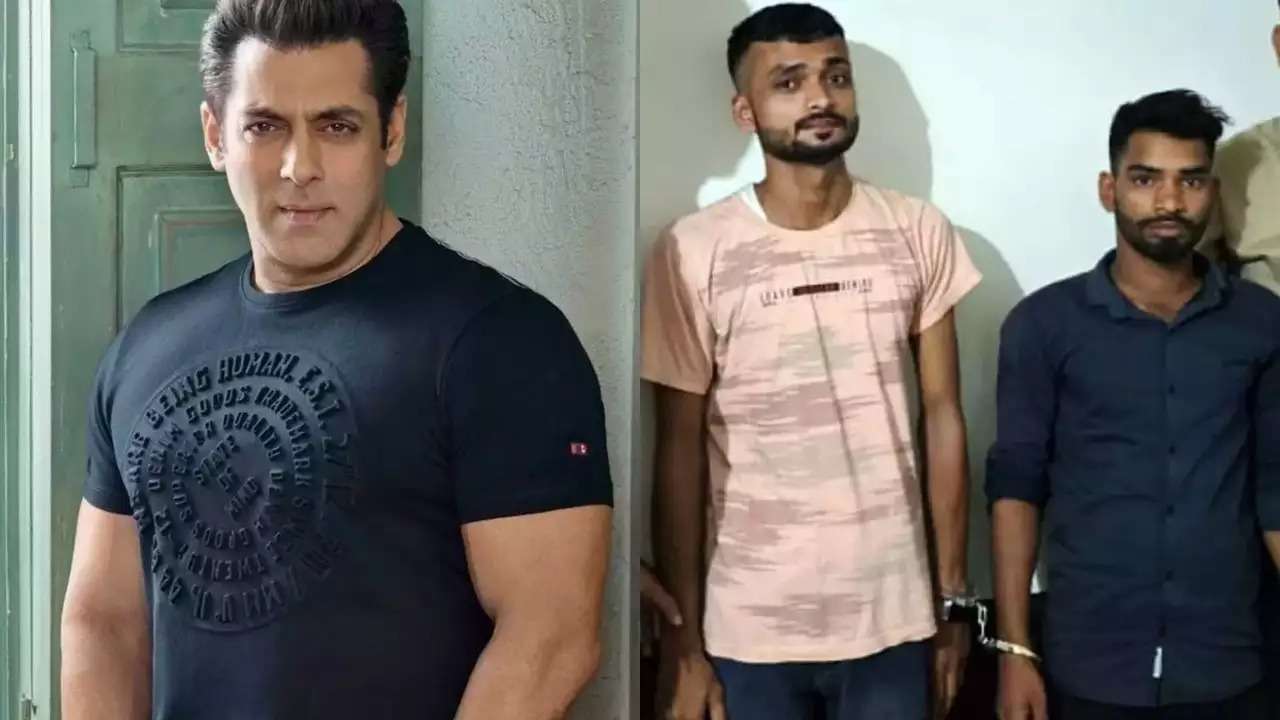
The investigation into the shocking firing incident that took place outside Salman Khan’s house on April 14 keeps bringing new updates with every passing day. In this case, Sagar Pal and Vicky Gupta, the two suspected shooters, have already been taken into custody.
The two shooters have reportedly been questioned by the National Investigation Agency (NIA), according to a new development. Every day that goes by, more information is revealed about the inquiry into the shocking firing incident that happened outside Salman Khan’s house on April 14. Sagar Pal and Vicky Gupta, the two accused shooters, are being held in custody after their first arrests.
It was recently discovered that the two shooters were questioned by the National Investigation Agency (NIA).
NIA has reportedly begun questioning Sagar Pal and Vicky Gupta, who were detained a few days ago for firing openly outside Salman Khan’s Galaxy Apartments in Mumbai, according to a recent update posted on their X (Twitter) account. NIA has interrogated shooters Vicky Gupta and Sagar Pal, arrested in the firing case, the tweet said.
According to the reports, two Punjabi residents were taken into custody by the Mumbai Crime Branch yesterday on suspicion of being involved in the recent shooting incident outside the house of Bollywood actor Salman Khan.
The two men, Sonu Subhash Chander and Anuj Thapan, provided guns to Sagar Pal and Vicky Gupta, the shooters, according to information released by the Mumbai Crime Branch. It was also reported that they had communication with the Bishnoi gang. For those who don’t know, hours after the incident, Anmol Bishnoi, the brother of gangster Lawrence Bishnoi, allegedly took credit for the firing in a Facebook post.
The shooters’ custody has been extended by Mumbai’s Esplanade Court until April 29.
Meanwhile, on the workfront Salman Khan was last seen in Tiger 3 alongside Katrina Kaif.
-
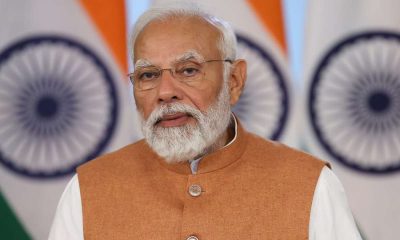
 2024 Lok Sabha Elections15 hours ago
2024 Lok Sabha Elections15 hours agoPM Modi calls for high voter turnout in second phase of Lok Sabha elections 2024, says your vote is your voice
-
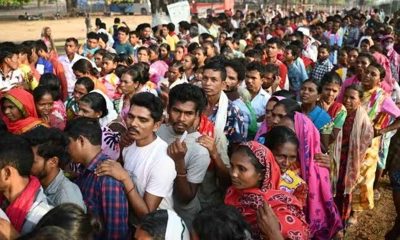
 2024 Lok Sabha Elections10 hours ago
2024 Lok Sabha Elections10 hours agoLok Sabha election 2024: Nearly 50% voter turnout recorded in second phase till 3 pm
-
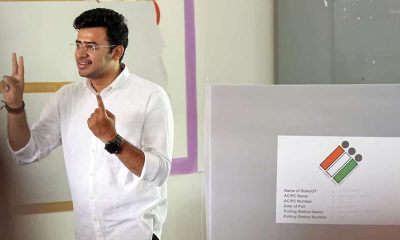
 2024 Lok Sabha Elections8 hours ago
2024 Lok Sabha Elections8 hours agoElection Commission books BJP MP Tejasvi Surya for seeking votes in the name of religion
-
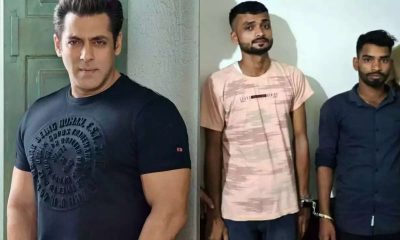
 India News14 hours ago
India News14 hours agoSalman Khan house firing case: NIA interrogates arrested shooters Sagar Pal, Vicky Gupta for three hours
-
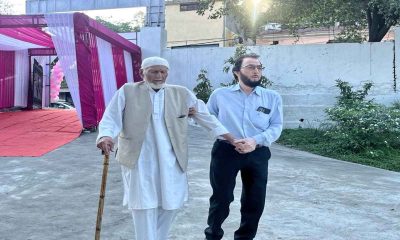
 2024 Lok Sabha Elections13 hours ago
2024 Lok Sabha Elections13 hours agoLok Sabha elections 2024: 102-year-old man walks to polling booth to cast his vote in Jammu

